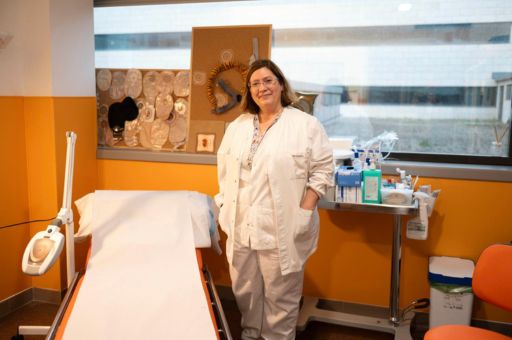This surgery has been the first in the Balearic Islands to receive the SEDE’s Humanisation recognition.
The stoma therapy surgery at Son Llàtzer University Hospital has been distinguished with the Humanisation recognition awarded by the Spanish Society of Expert Stoma Therapy Nurses (SEDE). This recognition, based on the Manual of Good Ostomy Practices, highlights the Hospital’s commitment to the humanisation of healthcare and the continuous improvement in the quality of life of ostomate patients.
Son Llàtzer University Hospital stands out in the Balearic Islands as the first stoma therapy practice to receive this distinction, which underlines its leadership in implementing humanised care. In the first national call for applications, 25 aromatherapy practices throughout Spain obtained recognition.
TDB keeps you informed. Follow us on: Facebook, Twitter and Instagram
Stoma therapy surgery at Son Llàtzer University Hospital recognised nationally for its commitment to humanisation
Since its creation, the stoma therapy clinic at Son Llàtzer University Hospital has demonstrated a firm commitment to the humanisation of healthcare and has focused its efforts on comprehensive care for patients and their carers. In addition to its healthcare work, it has actively participated in teaching, training, and implementing best practices in this field.
The importance of ostomy and specialised ostomy care
Ostomy is a surgical procedure in which an artificial opening is created in the body to facilitate the elimination of body waste such as faeces, urine or gas. Ostomies are performed on patients with diseases or injuries to internal organs such as the bowel, stomach, bladder or kidneys. There are various forms of ostomies, such as colostomy, which connects the colon to the abdomen; ileostomy, which links the small intestine; and urostomy, which allows urine to be evacuated.
The care of customised patients is essential for their well-being and adaptation to this new condition. Depending on the type of ostomy, this care may include health education, appropriate use of specialised materials, nutritional recommendations and emotional support.
The intervention of a specialised ostomy nurse plays a key role in all phases of the process, from preparation before surgery to follow-up after discharge from the hospital. Their work contributes to reducing postoperative complications, improving the patient’s adaptation to their new reality and reducing the length of hospitalisation.
